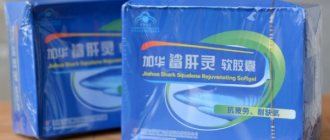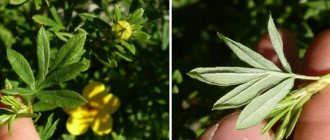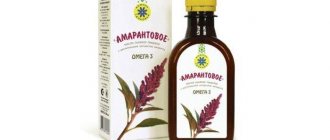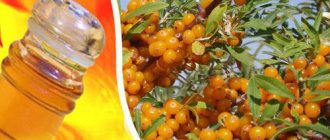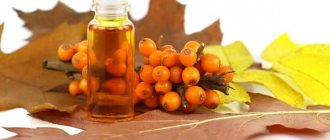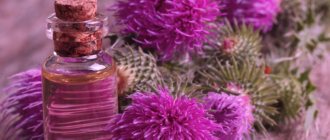Composition and beneficial properties of peach oil
Peach oil is obtained by cold pressing the seeds followed by filtration. The product contains many biologically active components:
- vitamins A, E, C, P, D, group B;
- minerals: iron,
- iodine,
- potassium,
- magnesium,
- calcium,
- phosphorus,
- zinc;
Thanks to this composition, peach oil is widely used not only in cosmetology, but also in various fields of medicine.
Peach oil is extracted from seeds by cold pressing and contains many useful components.
In otolaryngology, the use of the drug helps in the treatment of such diseases:
- rhinitis;
- otitis;
- sinusitis;
- pharyngitis;
- laryngitis;
- tonsillitis.
It should be remembered that when treating ENT diseases, you cannot use cosmetic oil, since it contains fragrances, preservatives and other chemical additives. For therapeutic purposes, you need to purchase pharmaceutical oil.
Many consumers choose peach oil as a healing remedy for the nose and throat, as it has a number of benefits:
- efficiency. Many note that the use of the product shows good results in the treatment of diseases of the nose and throat;
- safety. The oil does not contain any chemical components, it is absolutely natural, does not cause allergies, so it can be used to treat children and pregnant women;
- availability. The product can be purchased at any pharmacy, and its price is much lower than many medications;
- many application options. Peach oil can be rubbed in, instilled, inhaled, rinsed.
What kind of peach oil can be put into the nose?
Before use, you should make sure that the product is of high quality and will not aggravate unwanted symptoms. The following rules should be followed:
- the color of the substance is yellow, translucent;
- the smell is subtle, peachy;
- container - a bottle (25, 50, 100 ml) of tinted glass;
- the composition contains only peach oil;
- Preparation method: cold pressed.
It is important to remember that cosmetic peach oil cannot be dripped into the nose - it undergoes additional processing. It can be used to care for the face, hair, for a runny nose - as a lip balm or to lubricate the wings of the nose to prevent irritation and dryness.
For instillation, only edible oil is suitable, which can be purchased at a supermarket, pharmacy or specialty store.
Use of oil for nasal diseases
Many colds and infectious diseases are accompanied by copious mucus discharge from the sinuses. Peach oil can alleviate the patient's condition.
For a runny nose
A runny nose can be caused by:
- ARVI,
- flu,
- allergies to house dust and animal hair,
- allergies to flowering plants, etc.
Most often, a runny nose acts as a symptom of a certain disease, and not as an independent illness. Regardless of the nature of its origin, peach oil helps remove mucus.
To treat a runny nose, an ENT doctor may recommend peach oil.
When instilled into the nose:
- thins thick mucus;
- promotes peeling of dried crusts from the inner walls of the nasal sinuses;
- moisturizes dry mucous membranes;
- neutralizes pathogenic microflora;
- strengthens blood vessels;
- prevents various complications.
Peach oil will have the most effective effect in treating a runny nose if you follow certain recommendations:
- Before using the product, the sinuses must be cleared of excess mucus and dried crusts.
- Then the nose needs to be rinsed. This will remove contaminants and allergens and also have a disinfecting effect. Rinsing the nasal sinuses can be done with a water-salt solution. To prepare it you need to take 250 ml of water and 0.5 tsp. salt (table, iodized or sea).
You can also rinse the nasal passages with saline or pharmaceutical sprays based on sea water (Humer, Aqualor, Aqua Maris, etc.).
- Place 2-3 drops of peach oil into each nostril.
- Repeat the procedure up to 5 times a day.
For sinusitis
When the mucous membrane of the maxillary sinus becomes inflamed, sinusitis develops, which is characterized not only by copious nasal discharge, but also by headache, fever, fatigue, and nasal congestion.
In this case, peach oil is not able to defeat the disease on its own. However, it is one of the components in the treatment of sinusitis.
Symptoms of sinusitis include headache and facial pain, lacrimation, nasal congestion, runny nose
For nasal instillation for sinusitis, otolaryngologists recommend using a mixture consisting of the following ingredients:
- peach oil - 30 ml;
- St. John's wort oil - 10 ml.
This composition is instilled 3 drops into each nostril 5 times a day.
For bacterial infection
The green color of mucus coming from the nose speaks volumes about a bacterial infection. This can be bacterial or viral-bacterial rhinitis, sinusitis, otitis media, sinusitis. In such cases, it is necessary to add essential plant oils to peach oil, which have antiviral, antibacterial, and anti-inflammatory properties.
Experts suggest using tea tree and lavender oil. Ingredient shares:
- peach oil - 1 tsp;
- tea tree oil - 1 drop;
- lavender oil - 1 drop.
The mixture of components is instilled into each nasal passage, 3 drops 3 times a day.
Another recipe effectively copes with bacterial infection: a mixture of peach oil (30 ml) and propolis tincture (10 ml). The product is used in the same way as the previous composition.
Elimination of dryness in the nasal mucosa
Some diseases (for example, atrophic rhinitis) and excessive dry air can cause the nasal mucosa to dry out, which is accompanied by serious discomfort.
To eliminate dryness in the sinuses, you need to lubricate them with peach oil 3 times a day. You can also soak cotton or gauze swabs in peach oil and insert them into each nostril for 10-15 minutes. The procedure must be repeated three times a day.
Features of application
It is best to use this product not as nasal drops, but as aromatherapy using a special sprayer or aroma lamp.
This treatment method facilitates the rapid absorption of the beneficial components of this product, especially if nasal diseases in young children are being treated.
If you decide to drop peach oil into your child’s nose, then you need to remember a few important points that will help you achieve the maximum effect from the therapy.
Method of treatment
The daily dosage of nasal oil for adults and children over 6 years of age is a maximum of 15 drops, the minimum amount is 12 drops in each nostril. Only by adhering to this norm can you get a quick effect. If you divide this number of approaches over the whole day, it turns out that you need to bury your nose 4-5 times, 3 drops each, for 1 week. If necessary, the course of therapy can be extended after consulting with an otolaryngologist.
For babies under 1 year of age, the dosage should be slightly less, just 1-2 drops of the mixture 3-4 times a day. Excessive use of the substance is not recommended - you should not expect a positive result as soon as possible, because the oil acts slowly and gently.
Before carrying out the instillation procedure, older children, as well as adults, should first rinse the nasal cavity with saline solution. This will help clear the nostrils of mucus and dirt, due to which the active substances included in the peach oil will be more quickly absorbed into the epithelial tissues.
If nasal congestion or runny nose is not very pronounced, then the instillation should be canceled, and instead, the walls of the nose should be lubricated using an applicator or a hygienic cotton swab. Doctors recommend doing this at least 4 times a day until complete recovery.
You can prepare a universal balm for treating the throat, nose, and ears during exacerbation of respiratory infections. It is made very simply: for 10 ml of peach oil, add 1 drop of chamomile (if not, you can use eucalyptus), lavender, and tea tree oil. Mix well and the medicine is ready. It is also allowed to be used to lubricate the skin of newborn babies.
The opinion of doctors about the use of this substance is mostly positive. However, they do not recommend treating ENT diseases with it, without being absolutely sure that there is no individual intolerance to the components that make up this plant substance. To do this, you must first pass special tests.
You should buy peach oil for nasal drops only at a pharmacy. A mixture intended for cosmetic purposes will not work in this situation.
Using peach oil for the throat
If certain problems arise in the throat, then peach oil can also effectively cope with them. The product can be used in different ways.
Instillation through the nose
Probably everyone in life has encountered such a situation when the voice “shut down.” This problem often occurs in people who, by the nature of their profession, are forced to strain their vocal cords (singers, teachers, call center managers, salespeople).
Peach oil helps restore your voice quite quickly. To do this you need to do the following:
- Tilt your head back as much as possible.
- Place 2-3 drops into each nostril. Peach oil will begin to flow down the walls of the nasopharynx and lubricate it.
- You need to stay in this position for 2-3 minutes.
- Repeat the procedure 3 times a day.
To soften the nasopharynx, oil should be instilled into each nasal passage.
Lubrication and spraying
Pharyngitis or laryngitis is often accompanied by a dry, irritating cough that causes pain and soreness in the throat. In this case, lubricating the throat with peach oil, which softens the throat and eliminates dryness, is effective.
Actions:
- Wrap a bandage around your finger or pencil and soak it in peach oil.
- Lubricate a sore throat.
- Do not consume food or liquid for 30 minutes after treatment so that the active components of the product are well absorbed.
- Repeat the procedure at least 4 times a day.
Many people are unable to lubricate their throat due to the gag reflex. In this case, spraying with peach oil can be recommended. To do this, you need to take an old bottle equipped with a sprayer. It is necessary to spray the throat 3-4 times a day.
Rinse
For acute tonsillitis (tonsillitis), experts recommend gargling. With this procedure, the pathological microflora that causes the disease is effectively washed out of the tonsils.
The medicinal solution intended for one rinse contains the following ingredients:
- peach oil - 5 drops;
- honey - 1 tsp;
- warm clean water - 200 ml.
Peach oil does not dissolve in water. It will float on its surface. Therefore, first the oil is mixed with honey, and then this mixture is dissolved in water.
You should gargle with peach remedy 5 times a day.
By rinsing you can relieve inflammation and eliminate pathogens
Peach oil effectively helps cope with various diseases of the nasopharynx. However, for complete recovery it is necessary to use the combined use of peach oil and medications.
Steam inhalations
Inhalation is the treatment of the upper respiratory tract by inhaling healing components. This procedure is often used in the treatment of the throat, nose, and also for dry coughs, to reduce the viscosity of mucus and facilitate their removal.
The solution for inhalation is made as follows: take 5 drops of peach oil per 0.5 liter of hot water (58–60°C). The product is poured into a special inhaler. The procedure lasts 5–10 minutes.
If you don’t have an inhaler, then you need to do the following:
- Pour the prepared solution into a container with wide edges.
- Tilt your head over the container and cover with a thick towel.
- Inhale medicinal vapors with an open mouth and exhale through the nose.
- The session should last 5–10 minutes.
Inhalations with peach oil treat both the nose and throat
Attention! If you have pharyngitis, steam inhalations cannot be done, as the procedure greatly irritates the nasopharynx and aggravates the condition.
Contraindications
The first on the list is individual intolerance by the body. To determine the body's possible reaction, it is recommended to conduct a test. To do this, apply a few drops of oil to your wrist and rub until you feel warm. Wipe the skin on which the mass is applied with a damp cotton pad and inhale the smell.
An adverse reaction manifests itself in the form of many factors. These are headache, skin rash, itching and burning. Inhaling the aroma of the oil, a person may experience suffocation and a sore throat. If at least one of the listed symptoms is present, the remedy is not used and other methods of treatment are sought.
See also
Instructions for use of Umkalor drops and tablets for adults and children
Read
If no signs appear within 30 minutes, then the emulsion has been accepted by the body.
Peach oil is not recommended for children under 2 years of age. Babies cannot hold their breath, so they cannot control swallowing. As a result, a large amount of pomace can enter the body. Such situations end in the development of pneumonia.
Patients who have undergone rhinoplasty and other nasal surgeries cannot use peach pit juice.
If enough time has passed after surgery, the issue is discussed with the attending physician. Peach oil is not recommended for people with nervous or mental illnesses. It has a stimulating and stimulating effect, which is contraindicated in such conditions of the nervous system.
Peach oil for children
Peach oil is characterized by a delicate effect and does not irritate the mucous membrane of the nasopharynx. Therefore, it can be used for children, including newborns. However, in this case the oil must be sterile. You can sterilize the product as follows:
- Wash a glass container with soda (for example, a 0.5 liter jar).
- Pour boiling water over the vessel 2-3 times.
- Leave the jar to dry.
- Pour peach oil into a container.
- Place the vessel in a water bath.
- Keep on low heat for 45 minutes.
After cooling, the oil is ready for use.
Clean spouts
To remove dried crusts from a child’s nose, you need to drop 1 drop of oil into each nostril and after 1–2 minutes begin removing the softened mucus.
If your baby has a runny nose, you first need to rinse your nose with saline solution. You can use a pipette for this, since sprays are prohibited for children one year old. Then drop 1-2 drops of peach oil into each nasal passage. During the day you need to make 4 instillations.
Peach oil can be used to treat the nose and throat even in infants
We treat the neck
If problems are found in the throat of a baby, including a baby, (redness, slight swelling), then you can also use peach oil to eliminate them. Wrap a bandage around your finger, moisten it in oil and lubricate the baby’s throat. The procedure must be repeated 4 times a day.
Properties and effect of oils
With a severe runny nose, the nasal mucosa becomes irritated, ulcers appear on it, and crusts form. If treatment is ignored, chronic rhinitis develops, in which the membrane of the olfactory organ gradually atrophies, and the runny nose becomes permanent. To prevent this from happening, it is recommended to put essential oil into the nasal passages during cold season.
When such substances enter the body of a child or adult:
- Blood circulation accelerates.
- Swelling decreases.
- Toxins and viral decay products are removed.
- Immunity is strengthened.
Essential oils, which are clear solutions with different aromas and a bitter, spicy taste, differ in chemical composition, but have a similar principle of action.
Oil for the common cold, which is obtained from peach and grape seeds, flax seeds:
- promotes healing of the mucous membrane;
- reduces irritation;
- prevents the proliferation of bacteria and viruses.
Phytoncides present in vegetable oils perform the functions of an antiseptic - they suppress pathogenic microflora.
Medicines act much faster than natural remedies, but often cause side effects. Essential oils for a runny nose are suitable for both adults and children. They relieve and cope with itching. Improvement does not occur immediately, but the swelling subsides after two days.
Peach oil during pregnancy
Peach oil is a natural product. It does not cause allergic reactions or addiction. Therefore, it can be safely used by pregnant women to treat ENT diseases. However, expectant mothers must sterilize it before using peach oil.
Pregnant women can use peach oil in the treatment of ENT diseases
Where to buy peach oil for nose?
In order to soften or cleanse the nasal mucosa, it is best to buy the product in special departments of pharmacies. You need to check with the pharmacist about the purpose of the product, because even pharmacy chains sell both medicinal and cosmetic oils.
In cosmetic stores you can only buy cosmetics that may contain preservatives and fragrances.
Therefore, if you need a drug for treatment during an acute respiratory viral infection or to care for the delicate skin of an infant, then it is definitely better to opt for a pharmacy.



